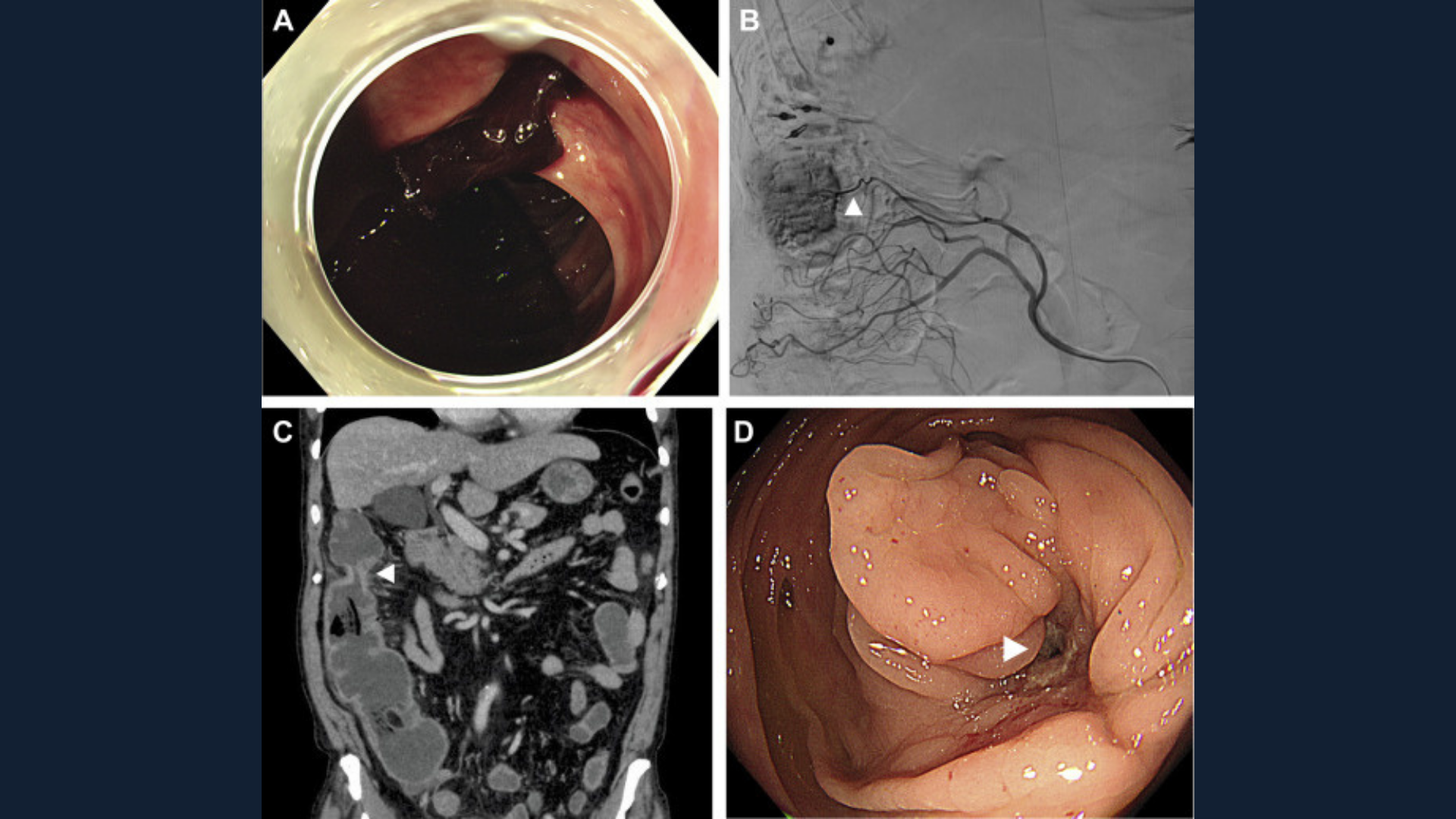Clinical Gastroenterology and Hepatology image of the month:
An 82-year-old man presented with abdominal pain and diarrhea after taking senna glycoside. He had undergone transcatheter arterial embolization (TAE) with microcoils for endoscopic hemostasis-resistant diverticular hemorrhage in the ascending colon 3 months previously (Figures A, B, arrowhead). No other colonic abnormalities were observed and he had no abdominal symptoms after the first hospital discharge until the present episode. On admission, hematology tests showed a strong inflammatory response (C-reactive protein, 17.21 mg/dL [reference range, 0.00−0.14 mg/dL]). Computed tomography imaging (Figure C) showed stenosis with inflammation in the ascending colon and marked proximal intestinal fluid retention. Colonoscopy confirmed severe stenosis of the ascending colon (Figure D, arrowhead). A biopsy specimen revealed nonneoplastic epithelium with inflammatory cell infiltration. The patient was diagnosed with obstructive colitis caused by TAE-induced ischemic colonic stenosis. Endoscopic balloon dilatation improved his symptoms and prevented restenosis.
TAE is particularly effective for colonic diverticular hemorrhage. Intestinal ischemia can occur after TAE, whereas intestinal stenosis is rare. We report here a case in which colonic stenosis progressed gradually after TAE, leading to obstructive colitis. Patients who have undergone TAE for a colonic diverticular hemorrhage should be followed up for several months, paying attention to stenotic symptoms.
View this case in the latest issue of Clinical Gastroenterology and Hepatology.












